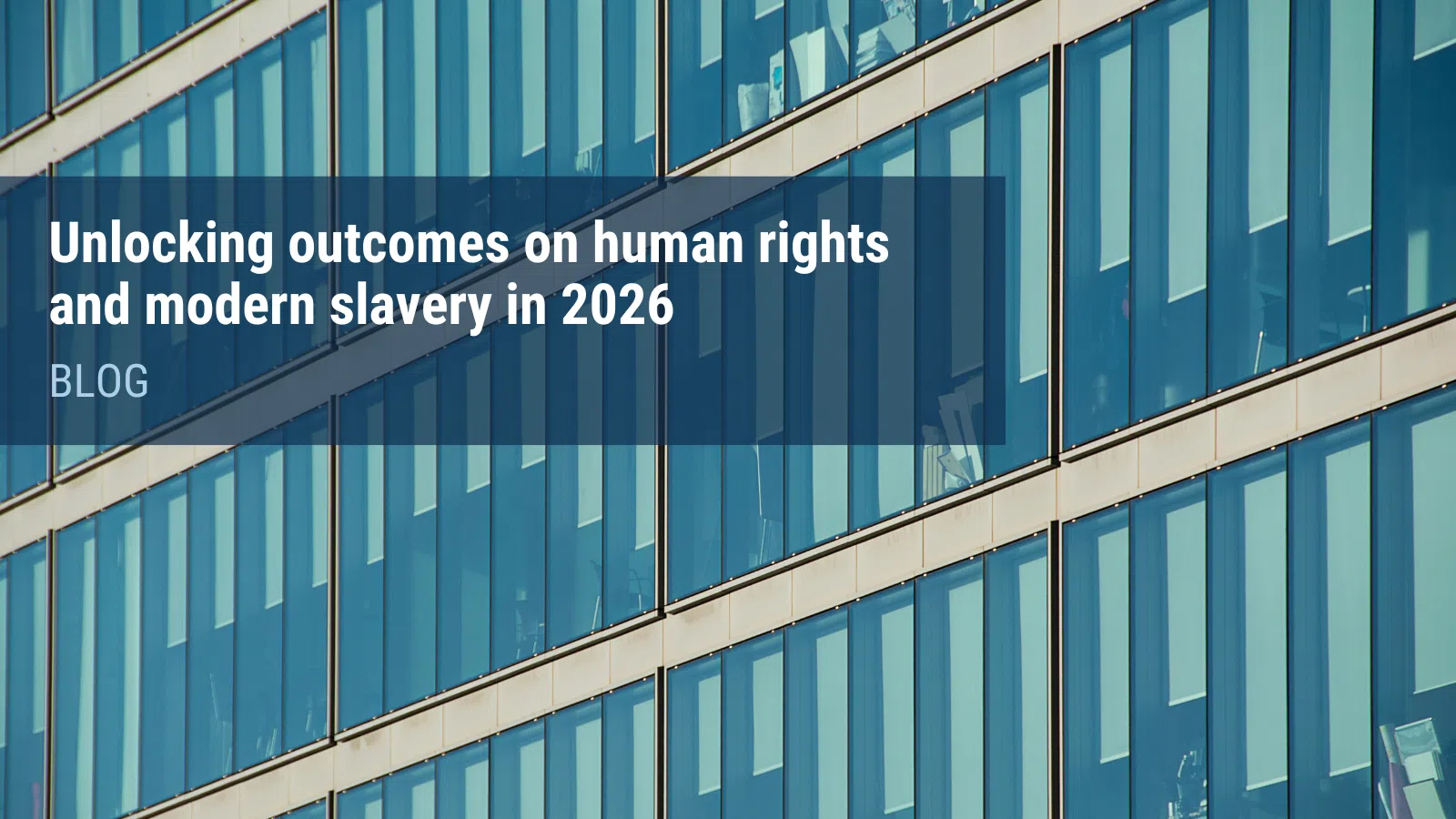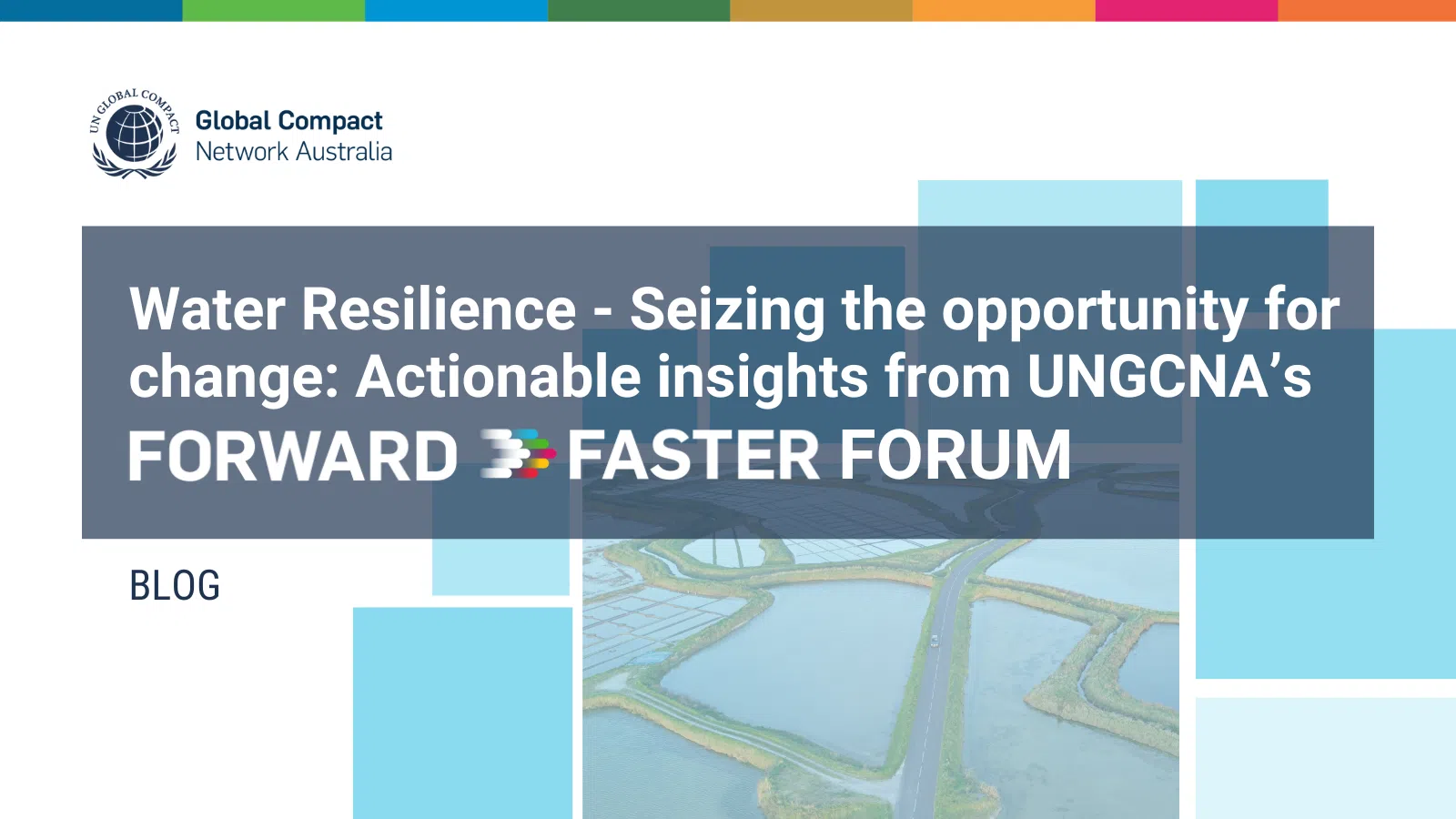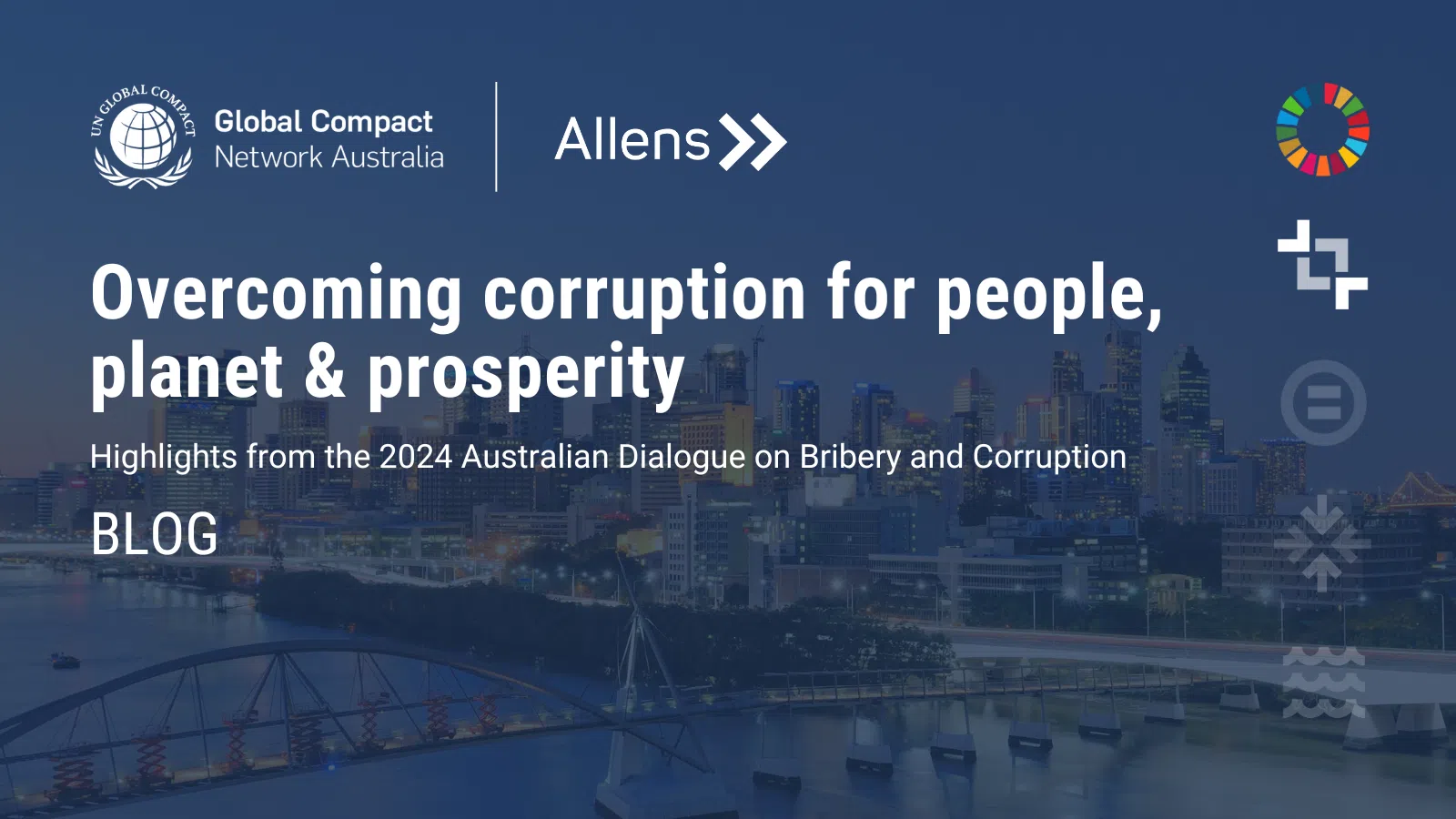
Blogs, Business & Human Rights
Unlocking outcomes on human rights and modern slavery in 2026
Catie Shavin | November 10, 2025
As a business and human rights professional, I’m used to the sensation of ‘everything, everywhere, all at once’.
Our work encompasses a vast range of risks to people that are deeply rooted in global economic, political and social systems. And the landscape of stakeholder expectations, regulatory initiatives, reporting frameworks, benchmarks and tools has evolved rapidly over the past decade.
But we’ve seen a step change in the challenges confronting sustainability professionals this year. This reflects the growing urgency to transition to a more sustainable economy accompanied by deep shifts in the geopolitical landscape, rapid developments in technology and the use of genAI, growing inequality and fracturing social cohesion.
Efforts to strengthen business approaches to human rights have arguably never been more important.
Effective approaches to modern slavery and human rights will be key to navigating these challenges successfully. We need to establish a foundation for a just and sustained transition, and put in place the conditions for collective problem solving at a global scale.
The question confronting business and human rights professionals now is how to cut through the overwhelm and best use (often limited) resources to move the dial on human rights, including modern slavery.
We unpacked this question at our 12th Australian Dialogue on Business and Human Rights, which took place as part of the inaugural UN Business and Human Rights Regional Forum: Australia and New Zealand a few months ago, and it has continued to provide a focus point for our discussions with businesses since.
As businesses in Australia start to focus more closely on 2026 planning, it feels timely to consider insights and opportunities from these ongoing discussions to work smarter, not harder.
- Prioritise focus and resources to achieve greater impact: As the number and range of challenges confronting human rights teams grows, so too does the need for robust prioritisation. If we want to get serious about achieving impact where it matters – improving situations for affected people and groups – we need to focus our energy and resources. Authoritative global standards, including the UN Guiding Principles on Business and Human Rights, support businesses to take a principles approach to prioritisation by taking a risk-based approach to human rights due diligence. That is, to focus first on their most severe human rights risks and issues. Human rights teams that feel overstretched may benefit from taking a close look at their priorities and commitments. What most needs your attention as we look towards 2026? What can you let go? And how can you communicate about those choices in a way that will land with internal and external stakeholders?
- Incorporate insights from lived experience: We see Australian businesses increasingly recognising the value of ensuring that approaches to human rights, including modern slavery, are informed by insights from lived experience. In recent discussions, practitioners have reflected on the ways in which the voices of affected workers and groups help bring issues to life – for them, and for colleagues – and focus minds on the experiences of affected people. Voices from lived experience can also help illuminate the deeper systemic challenges that need solving – including the power imbalances that can enhance the risk of vulnerability to exploitation. With the Australian Anti-Slavery Commissioner highlighting the need to centre voices from lived experience in his Office’s recently released strategic plan, we expect to see continued focus on how Australian companies can approach this.
- Embed a holistic approach to responsible and sustainable business: Many of the human rights challenges Australian businesses are working to address intersect with other sustainability issues – including good governance and efforts to address climate change, nature loss and other environmental risks. Reducing silos and pivoting towards a more holistic approach requires time up front – to build a shared understanding of the risk landscape, prioritise action and ensure coordinated ways of working. But it can also unlock opportunities to take action that is more effective and more efficient, and to solve for multiple challenges together.
‘Collaboration starts with listening, starts with being curious about the other perspectives, starts with finding this common ground where we find each other.’ – Linda Kromjong, amfori President
- Build community with peers: When things get tough, it can be hard to prioritise time to connect with others. And, it is during difficult times that we most need both community and connection. They offer a quiet, and often powerful, reminder that we’re not alone, and that many of the challenges we’re grappling with are shared. They also offer opportunities to share ideas and lessons learned, reflect together on ways to solve complex problems and even to collaborate to do so (within the limits set by Australian competition law). Whether it’s an informal coffee, a catch-up at a networking event, or time spent with UNGCNA participants at a peer learning session, workshop or larger event, taking time to be with others can help unlock not only our own resilience and wellbeing, but the impact of our work, too.
‘When the world is in trouble, when hope and solidarity has broken down, you have to go back to community.’ – Sharan Burrow AC, former President of the Australian Council of Trade Unions
We look forward to continuing our discussions with members about the challenges confronting businesses committed to operating with respect for human rights. We will share more soon on key trends and developments to watch for in the new year.
About the UN Business and Human Rights Regional Forum: Australia and New Zealand
UN Global Compact Network Australia, in partnership with the United Nations Working Group on Business and Human Rights, RMIT University, Macquarie University, UNSW, and World Vision New Zealand hosted the first-ever United Nations Business and Human Rights (UN BHR) Regional Forum: Australia and New Zealand on August 26-27. Held at RMIT’s Storey Hall, the forum brought together over 500 leaders from government, business, academia, civil society, and the investment sector to explore how businesses can better respect and promote human rights in a rapidly changing global landscape.



